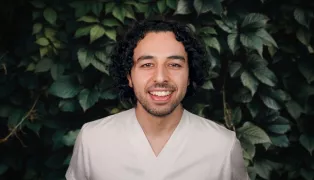Why did you make a film about bladder cancer research?
"The bladder cancer researchers wanted to spread information about their research and how it contributes to better treatments. This type of cancer diagnosis does not receive much attention, so it was interesting to highlight this particular area."
How have you thought about the purpose and target audience?
"The target audience is other researchers, cancer patients, and the general public. The choice of language was English because many researchers in the field are English-speaking, and it allows reaching a broader audience. We wanted to avoid complex terms and make the information easy for the general public to understand."
How did you proceed, and what advice do you have for others who also want to use film?
"LUCC made inquiries through its various networks in different cancer diagnoses to see if anyone was interested in presenting their current research through films. The first network to be interested in the idea was a network that, in addition to bladder cancer research, also researches prostate and kidney cancer. Then, I, Jana Hagman, and the involved researchers had planning meetings to discuss our thoughts and how to present their research in a video, says Mustafa Kadhim, whose goal is to be able to make more similar videos for other researchers in the future."


